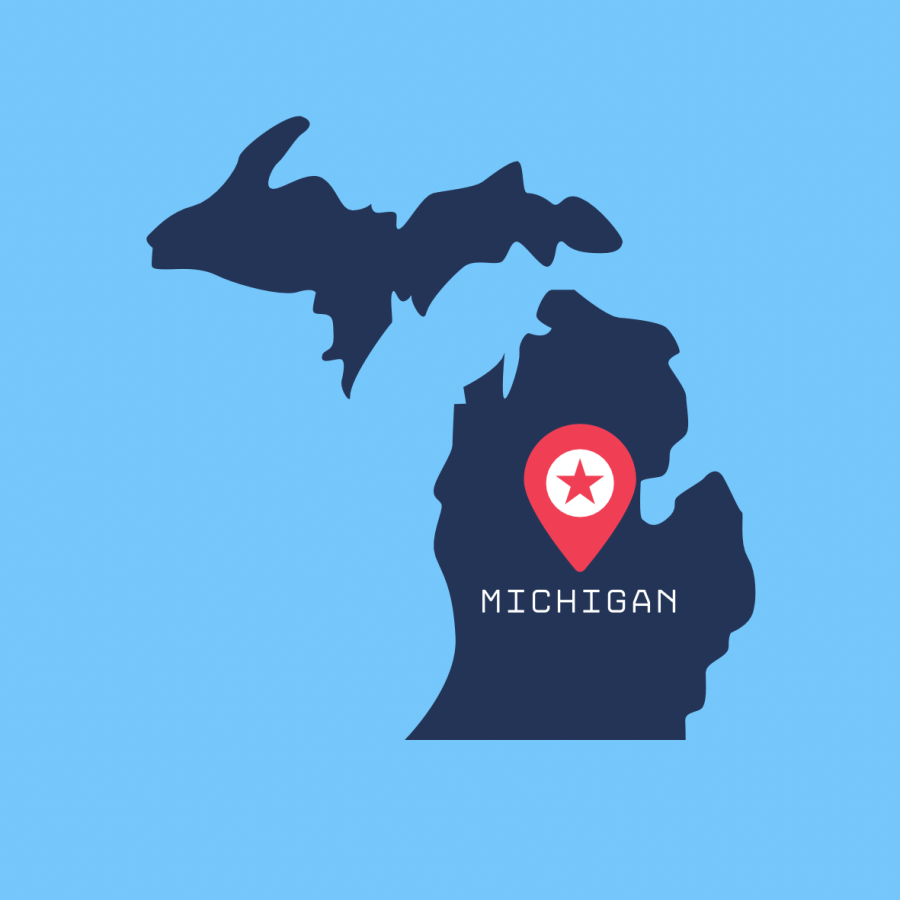Review of Michigan’s three ballot proposals for Nov. 8
On this year’s Election Day — Nov. 8, 2022 — Michiganders will decide on three state ballot proposals. The proposals focus on issues regarding early voting, term limit reform, voting transparency and reproductive rights.
Proposal 1: Voters for Transparency and Term Limits
If passed, Voters for Transparency and Term Limits would amend the state constitution to reduce the maximum length of time a legislator may serve from 14 years to 12 years. The initiative would also require state politicians to disclose certain financial information.
Currently, Michigan is one of two states that does not require state political leaders to disclose financial information. This measure would require lawmakers and executive officials to provide annual financial disclosure reports regarding their earnings, assets and gifts from lobbyists.
In brief, the proposal intends to increase transparency among elected officials in Michigan’s state government. Supporters argue that the measure would allow legislators to focus on serving their constituents while spending more time in one position.
Although Voters for Transparency and Term Limits is backed by a bipartisan coalition, there are several outspoken critics of the proposal. Opponents say the measure would allow current legislators to serve up to twice as long, which may severely decrease the turnover rate in the Legislature.
Proposal 2: Promote the Vote 2022
Promote the Vote 2022, Michigan’s second ballot proposal, would amend the state constitution to increase the accessibility of voting for all. The initiative is sponsored by several voting-rights groups, including Promote the Vote Michigan, the ACLU of Michigan, Voters Not Politicians, the League of Women Voters of Michigan and All Voting is Local.
Some voting reform measures included in the proposal aim to allow nine days of early voting, subsidize absentee ballots and continue to allow registered voters to cast ballots without ID if they sign an affidavit. The proposal intends to increase voter flexibility, privacy and accessibility while simultaneously protecting voting security.
Promote the Vote 2022 was heavily criticized before it was approved for the ballot, as challengers argued that sponsors of the proposal failed to include that the initiative would repeal existing sections of the constitution if passed. Additionally, critics explain that the proposed measures may lead to heightened costs and security concerns, specifically regarding absentee voting.
Supporters of the proposal believe that the measure is integral in protecting the voting ability of all eligible voters, regardless of party affiliation. They believe that this initiative would remove barriers to voting, effectively strengthening democracy in Michigan.
Proposal 3: Reproductive Freedom for All
The third proposal on Michiganders’ election ballots is Reproductive Freedom for All, a measure that would amend the state constitution to make reproductive freedom a right if passed. In turn, this would repeal a 1931 law banning abortion in Michigan.
The ballot committee for the cause began collecting signatures in the spring. The petition gained popularity after Roe v. Wade was overturned this past June, amassing over 735,000 valid signatures — a record number for the state.
The proposal was challenged by opponents due to spacing errors and confusing language. However, the Michigan Supreme Court certified the proposal, reasoning that it had met all legal requirements.
Out of the three proposed amendments on the Michigan ballot, Proposal 3 seems to be the most controversial. Some critics worry that the proposal may invalidate other abortion regulations, whereas others simply disagree with the morality of abortion.
Supporters point to early polling that suggests a majority of Michiganders oppose the overruling of Roe v. Wade. Considering that Reproductive Freedom for All would essentially restore the rights the Roe reversal took away from Michigan citizens, sponsors of the proposal are highly confident in its passage.











Yousaf • Oct 31, 2022 at 1:57 PM
If you support democracy and believe women are people, vote “yes” on all three!
yousef • Oct 26, 2022 at 12:05 PM
Interesting review of each of the three proposals.
i think you didn’t fully capture the potential impact of proposal 3 I encourage everyone to read the citizens research councils exhaustive analysis found here:
crcmich .org/publications/statewide-ballot-proposal-22-3-reproductive-freedom-for-all
delete the space between crcmich and .org when you paste the link, OP doesnt allow links in comments anymore
yousif • Oct 26, 2022 at 11:28 AM
Yes. Yes. Yes.
See you at the polls!!!
yousef • Oct 26, 2022 at 12:06 PM
if youre attempting to impersonate me my name is spelled with an e not an i yousef to yousif.
if youre a real person disregard